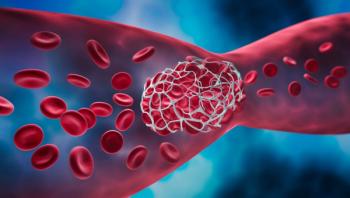
Dutch Company Raises Over $12 Million for Development of Home-based Blood Coagulation Test
Enyzyre says its at-home testing system will be a major advance for people with hemophilia because they will better able to manage the disease on their own.
Dutch diagnostic device developer Enzyre closed a financing round earlier this month, raising about $12.4 million to advance the development of its at-home blood coagulation test platform. The financing was led by Oost NL, with participation from other investors, and it included an Innovation Credit from the government of the Netherlands.
Enyzyre will use the funding to continue the development of its diagnostic technology platform called EnzyPad. The funds will help support clinical trials, a sustainable manufacturing line and the expansion of the platform’s use in clinical care settings.
EnzyPad is a handheld, portable testing device designed to be used with the Hemophilia EnzyCard and a small blood sample to test patients’ blood coagulation status from anywhere. The system is akin to blood glucose meters, which use small blood droplets on test strips to read blood sugar levels.
The EnzyCard is a cartridge that contains all the reagents and controls necessary to simultaneously perform up to 16 different reactions using a single blood drop. After sliding the cartridge into the EnzyPad, the results are transferred to a cloud-based application where treating physicians can access the information. Patients can access their results through a mobile phone app.
The EnzyPad is supposed to allow individuals with hemophilia to test and monitor their coagulation status from home or while on the go and obtain real-time results while staying connected with their physician or care team via telemedicine. The technology facilitates medication adjustments by physicians without the need for patients to travel to a hospital or doctor’s office, which decreases costs and treatment burden for patients and healthcare systems.
Enzyre says its EnzyPad can be a potential game changer for people living with hemophilia by enabling them to manage the disease more independently. The company plans to expand the use of EnzyPad into critical care settings, operating rooms, and oral-anticoagulant monitoring.
Newsletter
Get the latest industry news, event updates, and more from Managed healthcare Executive.

























